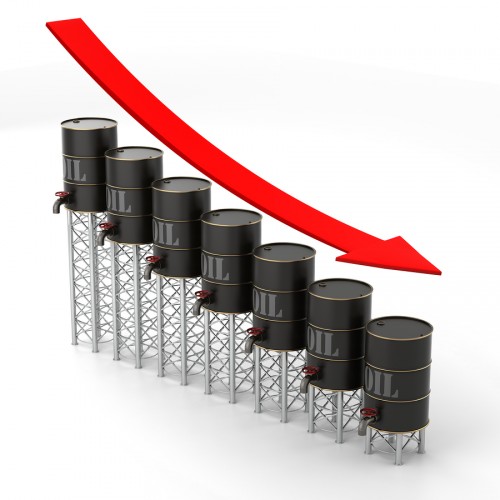Oil markets are crashing at the worst rate since the first Gulf war in 1991, amid a price war between Russia and Saudi Arabia. That means global markets could soon be dripping in oil supply, even as demand for energy plummets. Those events are already reverberating around the world, from emerging market currencies to US junk bonds.

Energy markets have been hit by a rare crosscurrent: Demand for oil is withering because of concerns that new coronavirus’s spread will weaken global economic growth. Paradoxically, a skirmish between two of the world’s biggest oil-producing countries means the supply of oil is poised to skyrocket. Russian officials, reportedly aiming to damage US energy companies, refused to agree with their Opec partners on a price cut to stabilize oil prices. Saudi Arabia retaliated by slashing its official prices and signaling that it will crank up output.
The oil pumping free-for-all is running smack into a global economy that was already reeling from the spread of Covid-19, which is stretching supply chains, causing worker shortages, while also cutting off travel as conferences are canceled and travelers stay home. The currencies issued by energy-producing countries like Norway, Russia, and Mexico are at risk from the oil crash, while the drop in stock market futures triggered circuit breakers, halting buying and selling, in early trading during London hours.
In the medium- to longer-term, lower energy prices could help stimulate economic growth by making consumption and travel cheaper. But for now, it’s adding to the pandemonium in financial markets, putting pressure on countries that export oil, companies that drill for it, and even clean energy companies that will be less competitive as the cost of oil plummets.
Regulators have warned that highly indebted companies are a risk to the world economy. Energy companies, including shale and fracking enterprises, are the biggest issuers of risky US junk bonds. More than $18 billion of debt issued by the oil and gas sector will mature in the next three months, according to Reuters data, meaning the companies have to repay their borrowing or find a way to refinance. That could be difficult for a host of oil executives as energy prices drop, hurting revenue and profit, and credit markets get tighter, making it harder to raise funds.
The yield on US energy company junk bonds (meaning they are ranked less than investment grade by rating agencies) increased to 9.9% on Friday, according to S&P Dow Jones Indices, the highest in about four years. Junk bond yields, which increase as prices decline, are climbing as investors sell anything with a hint of risk and buy up US Treasuries and other government bonds. Some of these bonds are trading at levels that suggest an increasing risk of default, which could result in bankruptcies and an increase in unemployment in the energy sector.
Lower energy prices could eventually help support the economy, but traders are braced for mayhem in markets for now.
QUARTZ

Leave a Reply
You must be logged in to post a comment.